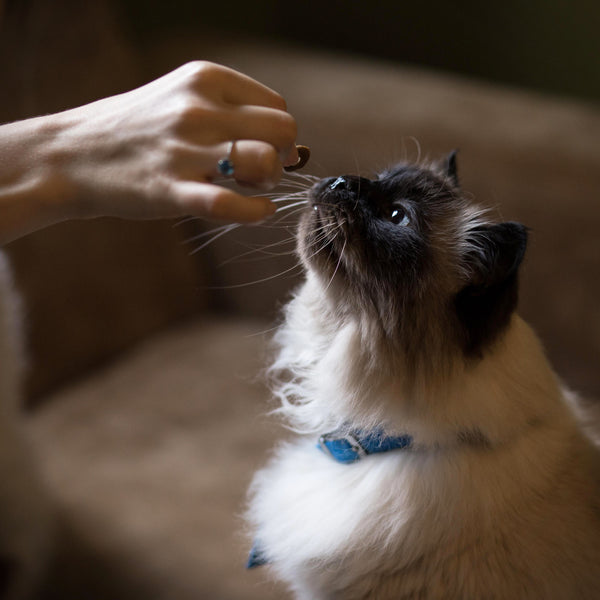Short answer: No, do not under any circumstances feed pesto to cats.
Long answer: When it comes to pesto, there’s no “one size fits all.” With different variations containing unusual ingredients such as beetroot, cauliflower, and even cured meat, it’s crucial to read the labels carefully. However, for the classic recipe containing olive oil, salt, pine nuts, cheese, garlic, and basil, let’s break down these ingredients to see if they are safe for cats.
Olive Oil
There are no issues with cats consuming olive oil. Like humans, pets need a healthy amount of fat in their diet for essential fatty acids. However, excessive fat can lead to weight gain, diarrhea, or vomiting if consumed in large quantities.
Salt
The safe level of salt for cats is a topic of debate among scientists. Generally, dried cat foods should contain no more than 0.2% salt. Some pestos on the market, however, can contain up to 5.1% salt, posing a risk of poisoning your cat, which can be fatal if left untreated.
Pine Nuts
Pine nuts, which are seeds, are not toxic for cats to eat in moderation, unlike some nuts. However, their high fat content can cause digestion problems, and since cats’ teeth are designed for tearing rather than chewing, swallowing pine nuts whole can pose a choking hazard.
Cheese
Traditional pesto contains Parmesan and Pecorino cheese, which are not toxic to cats. However, many cats are lactose intolerant, so cheese can cause digestion issues such as tummy ache or constipation. Cheese also has minimal nutritional value for cats, so it’s best to avoid giving it to them in large quantities.
Garlic
The consumption of garlic by cats is a matter of debate among animal nutritionists. It is recommended to avoid feeding garlic to cats due to the potential gastrointestinal issues it may cause.
Basil
Basil, the main ingredient in pesto, can be safely fed to cats in moderation.
Other Ingredients
Pesto sauces available in supermarkets often contain additional ingredients not found in the traditional recipe. Each sauce should be evaluated individually. However, it’s important to note that pesto is usually not at the top of a cat’s preferred food list. If they’ve never tasted it, they won’t know what they’re missing. Therefore, it’s best to avoid feeding pesto to cats altogether.
Frequently Asked Questions
Coming Soon
Conclusion
In conclusion, it is not recommended to feed pesto to cats. While some ingredients in pesto are safe for cats in moderation, such as olive oil and basil, others can be harmful, such as salt, pine nuts, cheese, garlic, and certain variations of the sauce. Additionally, cats are obligate carnivores, and pesto does not provide substantial nutritional value to their diet. Therefore, it’s best to avoid introducing pesto to their food repertoire. For more informative content and insights on pet nutrition, care, and well-being, visit Pawsoha.

